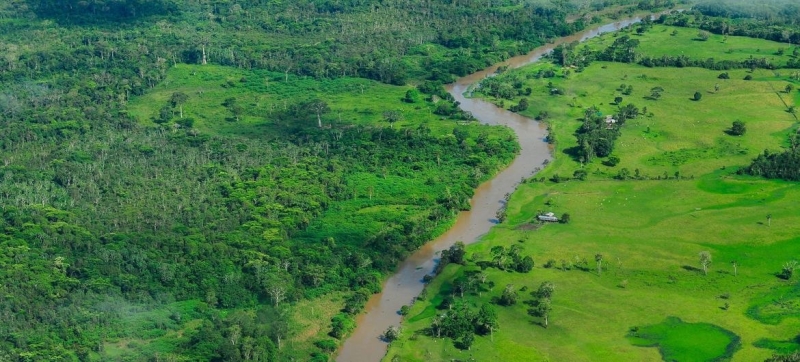- Khaleda now not fit for travelling: Medical Board |
- Panchagarh records lowest temperature 10.5°C so far this year |
- Christmas returns to Bethlehem after two years of Gaza war |
- কলাপাড়া মুক্ত দিবসে এবার সাড়া নেই কার |
- One killed, two injured in attack at Ctg meeting over marriage |
Brazil Launches Fund to Protect Forests and Fight Climate Change

The Amazon rainforest, covering much of northwestern Brazil and extending into other South American countries, is the world’s largest tropical rainforest and is vital to fighting climate change.
Tropical forests, vital allies in the fight against climate breakdown, are disappearing at an alarming rate. On Thursday, in an effort to reverse this trend, Brazil launched a new initiative at a summit of world leaders in Belém, the gateway to the Amazon.
The move comes ahead of COP30, the UN climate talks where countries will present updated plans to cut planet-warming emissions, alongside measures to protect forests and increase funding for renewable energy.
Known as the Tropical Forests Forever Facility, the fund will reward countries that succeed in halting deforestation. Aiming to make forests worth more standing than cleared, it could channel up to $4 billion a year to as many as 74 nations.
Tropical Forests Vital to Climate Stability
“Tropical forests breathe life into our planet. Yet they remain under relentless assault — treated as short-term profit, not long-term value,” said UN Secretary-General António Guterres, calling the launch “a statement of solidarity and hope.”
Under the fund, countries conserving their forests will receive $4 per hectare per year, adjusted according to verified performance using satellite monitoring.
A total of 74 countries are eligible, collectively hosting over one billion hectares of tropical and subtropical forests. Priority areas include the Amazon, Atlantic Forest, Congo Basin, Mekong region, and the island of Borneo.
“The Tropical Forests Forever Facility is a bold mechanism to make standing forests more valuable than cleared land — aligning conservation with opportunity, and solidarity with shared prosperity,” Mr Guterres said. “Tropical forests are vital to climate stability.”
Supporting Local Communities
During the UN General Assembly’s high-level week in September, Brazil’s President Lula da Silva announced the inaugural $1 billion investment in the fund. COP30 Executive Director Ana Toni confirmed that 20% of each country’s payments would go directly to local communities, supporting Indigenous Peoples and others protecting forests.
“This demonstrates Brazil’s determination not only to keep forests standing but also to reward those who are protecting them,” she said.
Building an International Coalition
The fund’s creation began at COP28 in Dubai in 2023 and culminated in its official launch at COP30. So far, five tropical forest nations have joined: Colombia, Ghana, the Democratic Republic of Congo, Indonesia, and Malaysia. Potential investor countries include Germany, the United Arab Emirates, France, Norway, and the United Kingdom.
The fund uses a blended investment mechanism, where dividends are shared between investors and forest nations. Governments are expected to contribute $25 billion over the coming years, leveraging more than $100 billion from private sources. Brazil estimates the fund could generate around $4 billion annually — nearly triple the current financing available for forest protection.
Yet global forest finance remains insufficient. According to UNEP, annual investment must rise from $84 billion in 2023 to $300 billion by 2030 and $498 billion by 2050, leaving a yearly shortfall of $216 billion.
Why It Matters
By linking financial rewards to forest conservation, the Tropical Forests Forever Facility aims to transform global efforts to tackle climate change and biodiversity loss. The initiative also promotes fair, inclusive, and predictable finance, ensuring support reaches those protecting forests with their hands, hearts, and heritage.
COP30 will run until 21 November, bringing together world leaders, negotiators, and stakeholders to accelerate action on climate change, with a focus this year on tropical forests, finance, and nature-based solutions.

